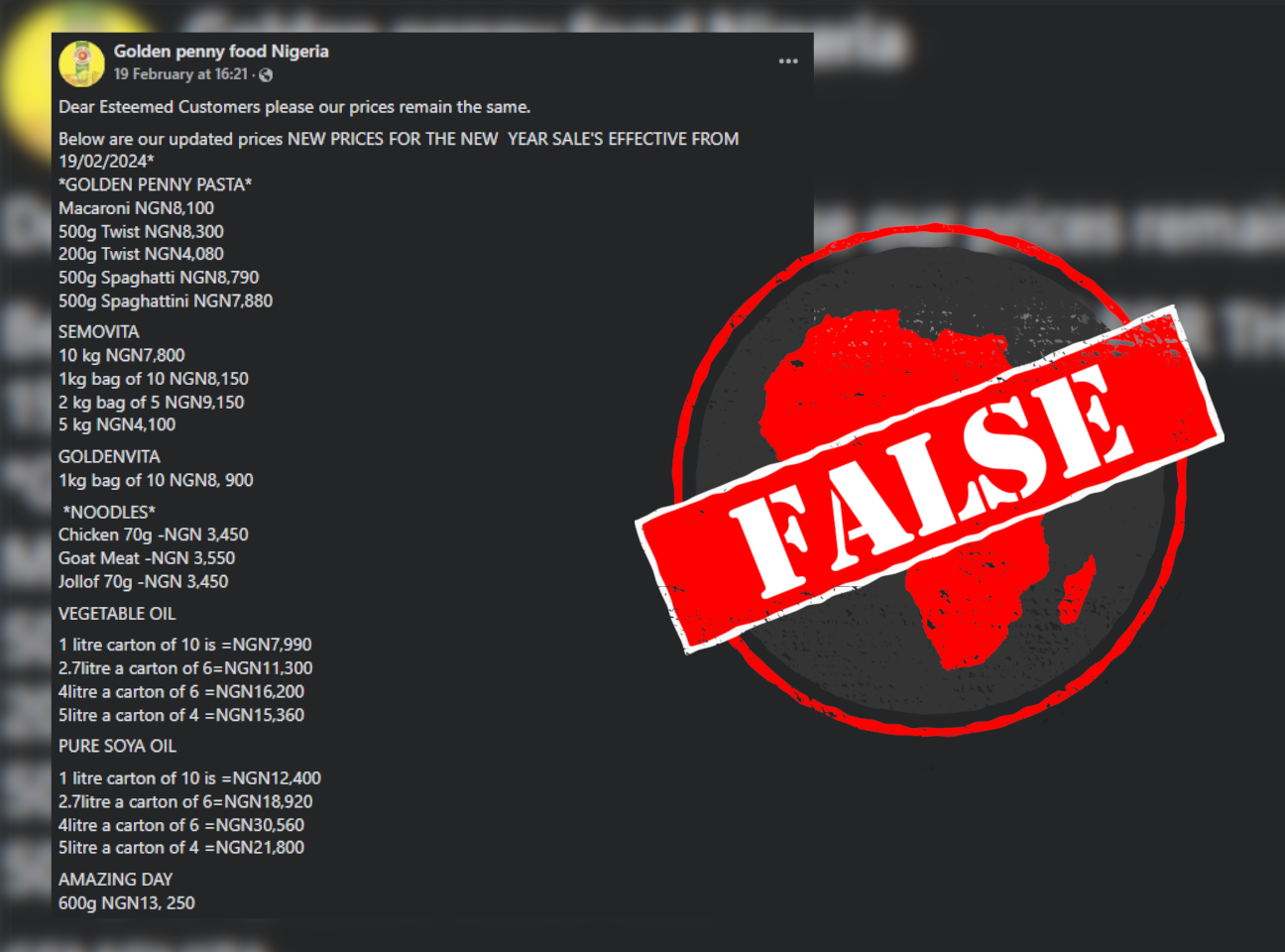IN SHORT: The consumables company has disassociated itself from a Facebook page impersonating it and sharing fake price lists of its products amid Nigeria’s food inflation crisis.
Inflation in Nigeria rose to 29.9% in January 2024, with food inflation as high as 35.4%.
In February, Nigerians took to the streets to protest against hunger and economic hardship as food prices continued to rise.
To tackle rising food prices, president Bola Tinubu ordered the release of 102,000 tonnes of rice, maize, millet and garri (cassava flour) from government stockpiles and millers to the market.
(Read more about Nigeria's struggling economy here.)
It is in this context that an updated price list of products has been posted on a Facebook page, with the claim it belongs to Golden Penny Foods.
Golden Penny is one of Nigeria's biggest food brands, producing consumables such as flour, pasta, noodles, cooking oil, sugar and margarine.
The Facebook page uses Golden Penny’s brand name and product photos to encourage people to call or message them to buy their products.
The comments section is full of people asking how they can buy the products directly.
The post has been reposted by other users here, here, here, here, here, here, here and here.
But is this post from Golden Penny Foods? We checked.

Beware of scammers, company says
The company shared a screenshot of the post on its official Facebook and Instagram pages, stamped “scam alert”, and distanced itself from the Facebook page.
It said its handle on Facebook was “Golden Penny Foods” and on Instagram “Gpennyfoods”, and these were the only pages to trust for updates and promotions.
Golden Penny also included a link to contact its distributors and partners, warning that it does not have a WhatsApp account and does not conduct business on WhatsApp.
Despite the increase in prices, Golden Penny Foods has not shared an updated product price list.
Protect yourself from fraud by reading our guide to spotting online scams.
Republish our content for free
For publishers: what to do if your post is rated false
A fact-checker has rated your Facebook or Instagram post as “false”, “altered”, “partly false” or “missing context”. This could have serious consequences. What do you do?
Click on our guide for the steps you should follow.
Publishers guideAfrica Check teams up with Facebook
Africa Check is a partner in Meta's third-party fact-checking programme to help stop the spread of false information on social media.
The content we rate as “false” will be downgraded on Facebook and Instagram. This means fewer people will see it.
You can also help identify false information on Facebook. This guide explains how.


Add new comment